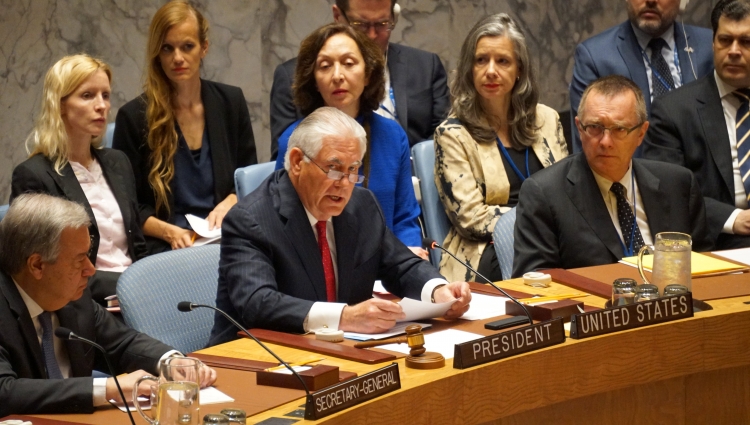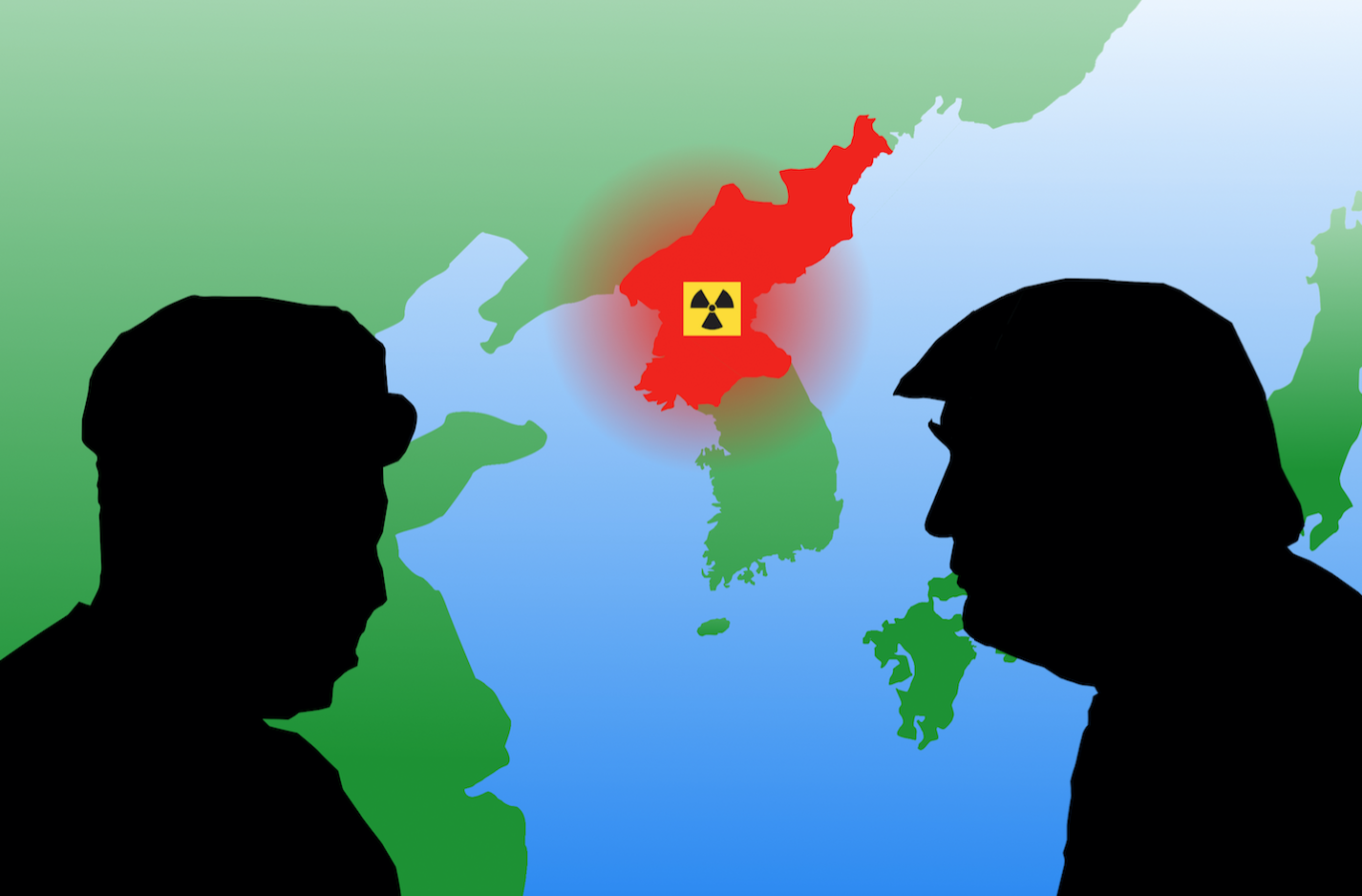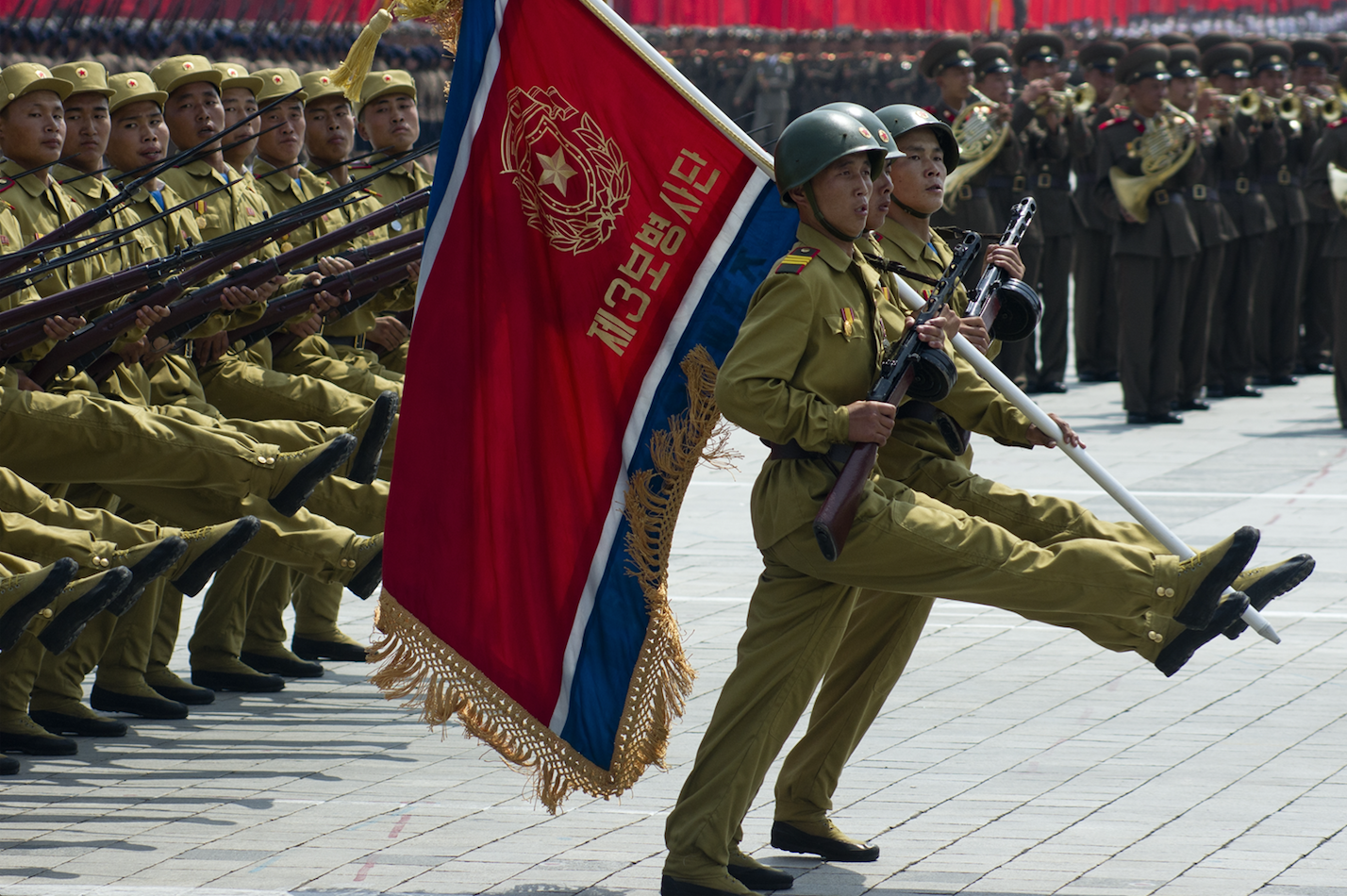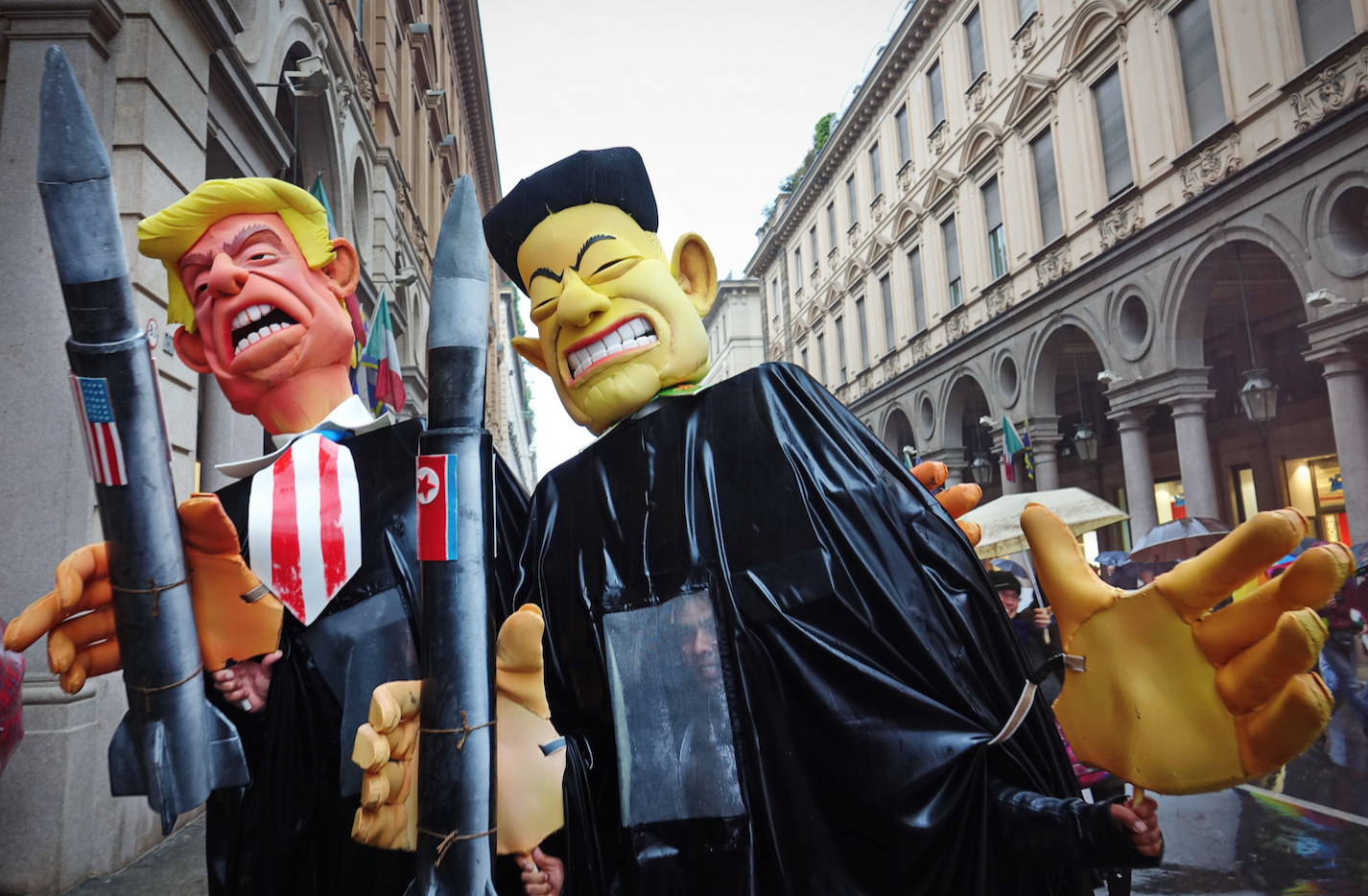The Knot of War on the Korean Peninsula

Since the Trump administration took office, the belligerent rhetoric that North Korea often releases against its political opponents has been matched by pronouncements from the Presidents' Twitter account. This is a significant departure from the last twenty-five years of diplomatic strategy in dealing with North Korea. Furthermore, it is not clear that there is any coherent administration-wide policy in managing the increasingly dangerous security crisis on the Korean peninsula.
President Trump has repeatedly undercut official statements from the State Department with his own proclamations of an imminent military solution. The State Department issued a statement encouraging multi-lateral diplomatic talks with the goal of securing a peace satisfying to both South Korea and the United States. This would curb North Korea's ability to continue developing weapons capable of striking the mainland of the United States. At the same time, however, President Trump warned that North Korea would "be met with fire and fury and, frankly power the likes of which this world has never seen before.” I will not try to square the rhetorical dissonance between the President and his State Department. I believe that is a question that can only be adequately answered by future historians who will have access to information that we currently do not possess. Rather, I will examine the diplomatic and military options that the United States has available and their consequences.
If we assume that American foreign policy objectives are the denuclearization (and, ultimately, reunification) of the Korean peninsula, balanced against the need for a minimal amount of casualties that would result from war, it's clear there are few, if any, acceptable options available. If North Korea is capable of striking the South Korean population with nuclear weapons, it follows that any military operation against the north could potentially result in a retaliatory nuclear strike against the south that would result in numbers of casualties that could be classified as a genocide. If such an event were to take place, no military outcome could be described as "winning". What we would have lost would outweigh our gains by multiple orders of magnitude.
Image credit: Shutterstock
This is hardly the first time that the United States has been in the position of being tasked with the protection of a smaller regional power against a nuclear-armed country. The most prominent examples come, predictably, from the Cold War. The best example is Berlin during the Cuban Missile Crisis. Berlin in 1962 was extremely vulnerable to its nuclear armed neighbor, the Union of Soviet Socialist Republics (USSR). Soviet leader Nikita Khrushchev succeeded in moving a significant amount of nuclear weapons into Cuba, well within striking range of the United States. President John F. Kennedy was constrained from using a military solution because retaliation by the USSR on Berlin (and potentially on mainland United States) would have been intolerable.
This dilemma that Kennedy was handed in 1962 has a number of parallels to current security crisis on the Korean Peninsula, with one notable exception (which I will discuss later). First, the opposing belligerent nation has a significant “hostage” in the form of a major, and highly strategically valuable allied nation (South Korea), whose presence makes military operations extremely likely to result in intolerably high casualties. It is often noted that the capital of South Korea, Seoul, is a mere fifty miles from the North Korean border, and is well within the range of North Korean conventional artillery. Second, the security threat presented by the opposing belligerent nation is long standing and has been highly resistant to conventional diplomatic solutions. Much like the former USSR, the leadership of North Korea has used diplomatic talks as a stalling tactic to further develop their nuclear program without interference. Third, the conflict has escalated significantly with the capability of the opposing nation to strike within the mainland United States. The advancement of North Korea’s missile program has made such a strike possible, if not today, then relatively soon. For reasons of domestic politics and security, this development pushes the United States leadership to take more immediate action.
But what sort of action will lead to the desired outcome of a denuclearized Korean peninsula? This question is complicated by the apparent willingness of the North Korean leadership to engage in a war in which they will almost certainly lose. This brings us to the end of the similarities between the North Korean security crisis and the Cuban missile crisis. According to a variety of reports, most notably from the New Yorker, the Korean leadership seems genuinely prepared to face almost certain annihilation. This is drastically different from the survival instincts of most nations. The former USSR was ultimately unwilling to engage in brinksmanship that would result in a nuclear exchange. Instead, Khrushchev opted for a diplomatic solution in which the missiles threatening the United States, would be removed in exchange for the United States removing missiles in Turkey which threatened Soviet territory.
Soviet-style military parade in North Korea. Image credit: Shutterstock/Astrelok
This sort of diplomatic solution, which diffused arguably the most serious nuclear crisis since the one we now face, does not seem possible today. North Korea has made it clear through repeated nuclear tests and through diplomatic channels that they are absolutely unwilling to allow their nuclear program to be used as a bargaining chip in negotiations. They seem to believe that to surrender their nuclear program would open the door to the toppling of the Kim regime, as it did to Gaddafi’s Libya not long ago.
While there is another lever that can be used against North Korea in the form of economic sanctions, the main trading partners of North Korea seem unwilling to apply the kind of pressure that would force the country into an untenable position. Even if China and Russia were to put in place sanctions that would deny the North Korean regime of resources they require to maintain their military and domestic infrastructure, it is no guarantee that the regime would not be able to carry on as a rogue nuclear state. After all, they have survived periods of intense economic deprivation and even starvation before. An ability to withstand those sorts of pressures is characteristic of totalitarian states. It is often claimed that China is unwilling to place significant economic sanctions on North Korea because it could lead to a refugee crisis on China’s border. I would suggest that the more pressing threat to China’s national interest is a unified Korean peninsula under the control of the south, which would lead to a United States ally directly bordering China.
This combination of factors leaves the opponents of the Kim regime with very few options. If the Korean peninsula cannot be denuclearized through threats of force or through international cooperation, then it may well be that the most acceptable outcome is to allow the DPRK to possess nuclear weapons until a long term peaceful solution can be reached.
Image credit: Shutterstock/Mike Dotta
While considering the motivations and abilities of the various political leaders in this crisis, I am reminded of a letter sent by Khrushchev to Kennedy during the most tense moments of the Cuban Missile Crisis. In it, Khrushchev warns Kennedy of the dangers of brinksmanship, and the calamity that it can lead to: "Mr. President, we and you ought not now to pull on the ends of the rope in which you have tied the knot of war, because the more the two of us pull, the tighter that knot will be tied. And a moment may come when that knot will be tied so tight that even he who tied it will not have the strength to untie it, and then it will be necessary to cut that knot, and what that would mean is not for me to explain to you, because you yourself understand perfectly of what terrible forces our countries dispose. Consequently, if there is no intention to tighten that knot and thereby to doom the world to the catastrophe of thermonuclear war, then let us not only relax the forces pulling on the ends of the rope, let us take measures to untie that knot. We are ready for this."
The leaders confronting the current crisis, I fear, may not have the same foresight and motivations that could prevent the cutting of the knot of war.










